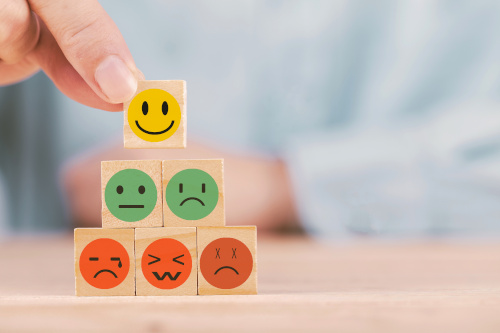The Covid-19 pandemic may be on everyone’s minds right now, but school districts grappled with another pandemic before the virus changed our world. School violence incidents such as the Parkland School shooting were increasing, and students’ physical and mental well-being were at critical levels.
New Caney Independent School District, northeast of Houston, Texas, understood that social emotional learning (SEL) and the missed opportunities to identify students with deficits played out in school–specifically in school violence.
The Collaborative for Academic, Social, and Emotional Learning (CASEL) states that SEL programs “provide a foundation for better adjustment and academic performance as reflected in more positive social behaviors and peer relationships, fewer conduct problems, less emotional distress, and improved grades and test scores.”
In the 2018-2019 school year, to measure its students’ mental health and well-being, New Caney ISD partnered with Panorama, a data collection system, to gather information from 10,000 students whose results highlighted significant SEL deficits.
Simultaneously, the 2019 Texas Legislature expanded SB11 to include student safety and mental health support for public schools. According to Loree Munro, New Caney ISD’s director of Advanced Academics and Counseling, the legislative traction of SB11 helped the district propel its initiative to incorporate SEL throughout the school district.
In the fall of the 2019-20 school year, using grants from organizations such as Mental Health America of Greater Houston, New Caney ISD piloted its SEL program at two elementary schools, two middle schools, and its early college high school. Using essential criteria such as common language across all grade levels, turnkey implementation, a light lift for teachers, and alignment with the CASEL competencies, the district implemented the 7 Mindsets program. This research-based SEL program promotes self-awareness, self-management, social awareness, relationship skills, and responsible decision-making.
Despite the challenges presented when schools went remote in March 2020, New Caney ISD expanded the 7 Mindsets program district-wide in the fall of 2020.
“I always think of pilot implementation programs as being a sort of honeymoon with no financial struggles, highly-motivated school leaders, and a stable school environment. When you take some of those things out of the equation, ideal circumstances are gone, and we are looking at real-world struggles,” Munro
said.
New Caney ISD had varying degrees of success with SEL and 7 Mindsets on campuses this school year. Factors stacked against them included new campuses implementing the program for the first time, 7 Mindsets curricula implemented virtually, and educating students who were not physically in front of them.
“When I think back, I so appreciate and the dedication of our school and district leaders to continuing down this path because it would have been easy to say this is not the year to implement anything new,” Munro reflected.
What kept the district on course was its belief that students needed to acquire those social and emotional skills and competencies necessary for success in life. New Caney ISD committed to including SEL in explicit instruction, embedding SEL language across the curriculum and grade levels, and reinforcing SEL throughout the week to ensure that it is at the forefront of students’ minds.
While there are still bumps in the road and challenges to overcome, implementing an SEL program–even during a pandemic–has already resulted in fewer tier two and tier three interventions in the district.
Teachers, support staff, and building administration say they can identify and address students with behavioral needs and mental health issues more quickly at a tier-one level using 7 Mindsets.
While New Caney ISD had financial advantages that other districts may not have, Munro recommends that districts quantify the need to implement SEL using programs like Panorama and present the data to school boards and district administration. Once deficits are discovered, the district’s ethical responsibility is to address its students’ needs. Identifying critical players, and ensuring all have a deep understanding of SEL and the impact an SEL program can have on students and teachers, are the next steps.
Munro also recommends that while school districts may begin an SEL program at the elementary level, it is critical to have a vision for the entire K-12 school community.
- 3 ways to avoid summer learning loss - April 19, 2024
- High school students say AI will change the workforce - April 18, 2024
- Motivating students using the Self-Determination Theory - April 17, 2024


